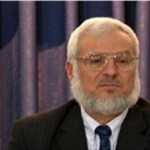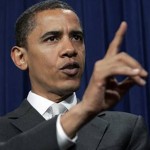
A new operation against Hamas is being discussed by Israeli officials, media institutions and citizens. There are two very different options: 1) hitting Hamas in a military operation even bigger than last year's Operation Cast Lead to give a "better" lesson and open the border or 2) trying to have a dialogue, fostering economic development in Gaza.
Following "hawkish" statements by the Israeli military,
The Jerusalem Post claimed that
the Israeli Defense Forces are prepared to take control of the Philadelphi Corridor in the southern Gaza Strip and deploy military forces in it, a plan which was shelved ahead of the offensive in December 2008 by the Olmert Government. It is alleged that Hamas has dug several hundred tunnels under this 14-kilometer strip of land to smuggle weapons and explosives.
Israel and Gaza: Another War Possible?
In contrast, an editorial in
Haaretz, contends, "Israel needs to re-think of its Gaza strategy before it is too late." Instead of an additional economic embargo and military force, which have failed to ensure Israel's security and ease Gazans' poor living conditions, crossings between Israel and the Gaza Strip should be opened and an economic initiative should be pursued.
Here is the full article:After a year of relative quiet in the south following the cease-fire that ended Operation Cast Lead, there has been a marked escalation in violence along the Israel-Gaza border. Qassam rockets and mortars are being fired from Gaza, and the Israel Air Force retaliated by attacking targets in the Strip, killing several Palestinians. Prime Minister Benjamin Netanyahu warned Hamas that Israel would "respond forcefully" to any fire on its territory.
Incidents involving live fire have aggravated relations between Hamas and Egypt, which is tightening the siege on Gaza. The Egyptians are building an underground steel wall to thwart smuggling through tunnels into Sinai, and are prohibiting supply convoys from entering Gaza through the Rafah crossing. Foreign peace activists who wanted to show support for Gaza were stopped in Cairo.
Gaza erupts whenever Israelis begin to feel that the Strip and its troubles have been forgotten. There is no easy solution to the troubles of 1.5 million poor Palestinians under double blockade, by Israel and Egypt, and whose government is being boycotted by countries around the world. A renewal of rocket fire shows that even a major military operation that brought death and destruction cannot ensure long-term deterrence and calm.
Israel has an interest in stopping escalation at the border so as not to find itself caught up in another belligerent confrontation with Hamas. Netanyahu's threats have not attained this goal. Like his predecessor, he risks placing his imprimatur on public commitments that will only push Israel toward another military operation to "strengthen deterrence" and teach Hamas a lesson."
The time has come to rethink Israeli strategy in Gaza. The economic embargo, which has brought severe distress to the inhabitants of Gaza, has not brought down Hamas, nor has it freed kidnapped soldier Gilad Shalit. The siege has only damaged Israel's image and led to accusations that it has shirked its humanitarian responsibilities in Gaza under international law.
Instead of erring by invoking the default solution of more force, which does not create long-term security or ease the distress of the Palestinians in Gaza, the crossings between Israel and the Gaza Strip should be opened and indirect assistance rendered to rebuild its ruins. The same logic that dictates the government's actions in the West Bank - creating an economic incentive to prevent terror - can and must work in the Gaza Strip as well.
 Friday, January 22, 2010 at 9:31
Friday, January 22, 2010 at 9:31  The Jerusalem Post reports that, following a meeting in Hebron with British millionaire David Martin Abrahams on Wednesday, Aziz Dwaik, a Hamas senior representative and the elected speaker of the Palestinian Legislative Council in the West Bank, said that Hamas has accepted Israel's right to exist and would be prepared to alter its charter.
The Jerusalem Post reports that, following a meeting in Hebron with British millionaire David Martin Abrahams on Wednesday, Aziz Dwaik, a Hamas senior representative and the elected speaker of the Palestinian Legislative Council in the West Bank, said that Hamas has accepted Israel's right to exist and would be prepared to alter its charter.



